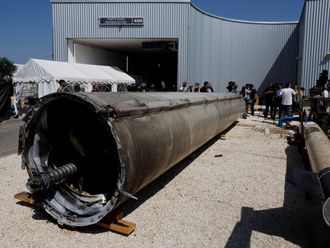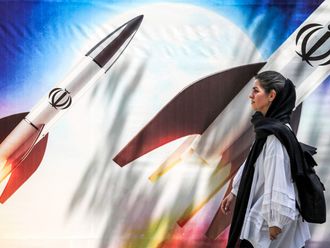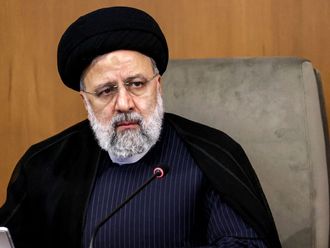London: Britain plans to reopen its embassy in Iran, Foreign Secretary William Hague announced on Tuesday, as the West steps up its engagement with Tehran amid rapid jihadist advances in neighbouring Iraq.
Sunni militants from the Islamic State of Iraq and the Levant (Isil) group are moving towards the Iraqi capital Baghdad after a weeklong offensive which has seen them make key gains including taking the second city of Mosul.
The British embassy in Tehran closed nearly three years ago after it was stormed by a mob angry at sanctions imposed over Iran’s nuclear programme.
“The circumstances are right to reopen our embassy in Tehran. There are a range of practical issues that we will need to resolve first,” Hague said in a written statement to parliament.
“However, it is our intention to reopen the embassy in Tehran with a small initial presence as soon as these practical arrangements have been made.”
The move came after historic foes Iran and the United States, which is considering drone strikes in Iraq, briefly discussed the crisis on the sidelines of nuclear talks in Vienna on Monday.
President Barack Obama is sending up to 275 military personnel to Iraq to protect US personnel and its embassy in Baghdad, while Washington has deployed an aircraft carrier to the Gulf.
Officials insist no combat troops will be sent back to the country. The last US fighting forces left Iraq in 2011 following the 2003 invasion.
Key player Iran
Hague’s statement to parliament’s lower House of Commons did not directly mention the situation in Iraq but noted that “Iran is an important country in a volatile region”.
He later told MPs in person that Iran had historically played a “divisive and sectarian” regional role but added: “We look to it to desist from that and we will use the expansion of bilateral relations to press for that.”
Diplomatic ties between Iran and Britain, the former colonial power, were strained long before the closure of the embassy in 2011.
There have been a string of major flare-ups in recent decades including over a fatwa issued against British author Salman Rushdie by Supreme Leader Ayatollah Khomeini in 1989 and the seizure of 15 British sailors by an Iranian naval patrol in the northern Gulf in 2007.
Britain appointed a non-resident charge d’affaires to Iran in November, restoring direct diplomatic contacts severed in 2011.
Hague said he took the decision to move towards reopening the embassy after a phone call with Iranian Foreign Minister Mohammad Javad Zarif on Saturday.
He added there had “never been any doubt in my mind that we should have an embassy in Tehran if circumstances allowed”.
Hassan Rouhani, the president of mainly Shiite Iran, last week said it may consider cooperating with the US to fight Sunni extremists in Iraq.
Rouhani took power last year amid hopes he would be more moderate and be more engaged with the West than his predecessor, Mahmoud Ahmadinejad.











